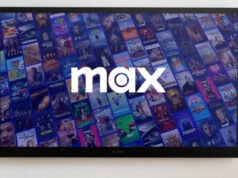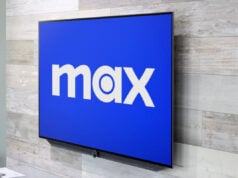EU’s konkurrencekommissær Margrethe Vestager og EU har givet chipproducenten en bøde på 997 millioner Euro (7.4 mia. kr.) for at misbruge sin dominerende position i markedet for LTE-chips til smartphones og andre mobile enheder.
EU har dømt Qualcomm 997 millioner Euro i bøde for at have betalt Apple for udelukkende at bruge Qualcomm’s LTE-baseband chips i deres iPhones.
“Qualcomm har ulovligt holdt rivaler ude af markedet for LTE baseband-chips i mere end fem år, og på den måde sikret sig en dominans i markedet”, skriver siger Margrethe Vestager, EU’s konkurrencekommissær, i en pressemeddelelse.

Ulovlig aftale med Apple siden 2011
Tilbage i 2011 indgik Qualcomm og Apple en aftale, der gjorde at Apple udelukkende brugte LTE-chips fra Qualcomm, og med Apples markedsandel aftog Apple mere end hver 3. LTE-chip, som Quallcomm solgte i perioden. Det har gjort at andre leverandører som Intel, Nvidia og Samsung har haft svært at få en stærkere position i markedet or LTE-chips.
Først da den fem-årige aftale udløb i 2016 begyndte Apple at bruge chips fra andre leverandører.
Bøden på de 997 millioner Euro udgør næsten 5 procent af Qualcomms omsætning i 2017.
Her er pressemeddelsen fra EU
Antitrust: Commission fines Qualcomm €997 million for abuse of dominant market position Brussels, 24 January 2018 The European Commission has fined Qualcomm €997m for abusing its market dominance in LTE baseband chipsets. Qualcomm prevented rivals from competing in the market by making significant payments to a key customer on condition it would not buy from rivals. This is illegal under EU antitrust rules. Commissioner Margrethe Vestager, in charge of competition policy, said: “Qualcomm illegally shut out rivals from the market for LTE baseband chipsets for over five years, thereby cementing its market dominance. Qualcomm paid billions of US Dollars to a key customer, Apple, so that it would not buy from rivals. These payments were not just reductions in price – they were made on the condition that Apple would exclusively use Qualcomm’s baseband chipsets in all its iPhones and iPads. This meant that no rival could effectively challenge Qualcomm in this market, no matter how good their products were. Qualcomm’s behaviour denied consumers and other companies more choice and innovation – and this in a sector with a huge demand and potential for innovative technologies. This is illegal under EU antitrust rules and why we have taken today’s decision.” Qualcomm’s practices and the market for LTE baseband chipsetsBaseband chipsets enable smartphones and tablets to connect to cellular networks and are used both for voice and data transmission. LTE baseband chipsets comply with the 4G Long-Term Evolution (LTE) standard. Qualcomm is by far the world’s largest supplier of LTE baseband chipsets. But there are other chip manufacturers active in this market – Intel (the largest supplier for chipsets used in computers), in particular, has tried to challenge and compete with Qualcomm for customers. Then as today, Apple was a key customer for LTE baseband chipsets, being an important maker of smartphones and tablets with a premium brand image worldwide. In 2011, Qualcomm signed an agreement with Apple, committing to make significant payments to Apple on condition that the company would exclusively use Qualcomm chipsets in its “iPhone” and “iPad” devices. In 2013, the term of the agreement was extended to the end of 2016. The agreement made clear that Qualcomm would cease these payments, if Apple commercially launched a device with a chipset supplied by a rival. Furthermore, for most of the time the agreement was in place, Apple would have had to return to Qualcomm a large part of the payments it had received in the past, if it decided to switch suppliers. This meant that Qualcomm’s rivals were denied the possibility to compete effectively for Apple’s significant business, no matter how good their products were. They were also denied business opportunities with other customers that could have followed from securing Apple as a customer. In fact, internal documents show that Apple gave serious consideration to switching part of its baseband chipset requirements to Intel. Qualcomm’s exclusivity condition was a material factor why Apple decided against doing so, until the agreement came to an end. Then, in September 2016, when the agreement was about to expire and the cost of switching under its terms was limited, Apple started to source part of its baseband chipset requirements from Intel. But until then, Qualcomm’s practices denied consumers and other companies the benefits of effective competition, namely more choice and innovation.
Breach of EU antitrust rulesQualcomm’s practices amount to an abuse of Qualcomm’s dominant position in LTE baseband chipsets by preventing competition on the merits. Market dominance is, as such, not illegal under EU antitrust rules. However, dominant companies have a special responsibility not to abuse their powerful market position by restricting competition, either in the market where they are dominant or in separate markets. Today’s decision concludes that Qualcomm held a dominant position in the global market for LTE baseband chipsets over the period investigated (i.e. between at least 2011 and 2016). This is based in particular on its very high market shares, amounting to more than 90% for the majority of the period. The market is also characterised by high barriers to entry. These include the research and development expenditure required before a supplier can launch an LTE chipset and various barriers related to Qualcomm’s intellectual property rights. Qualcomm has abused this market dominance by preventing rivals from competing in the market. It did so by making significant payments to a key customer on condition that it would exclusively use Qualcomm chipsets. The issue with such an arrangement is not that the customer receives a short-term price reduction, but that the exclusivity condition denies rivals the possibility to compete. Based on a variety of qualitative and quantitative evidence, the Commission found that both consumers and competition have suffered as a result of Qualcomm’s conduct. This assessment took into account, among other things:
The Commission also assessed and rejected a “price-cost” test submitted by Qualcomm. The Commission concluded that the results of this test failed to support Qualcomm’s claim that its exclusivity payments were not capable of having anti-competitive effects. On this basis, the Commission concluded that Qualcomm’s illegal practice had a significant detrimental impact on competition. It excluded rivals from the market and deprived European consumers of genuine choice and innovation.
Consequences of the DecisionThe fine in this case of € 997 439 000 takes account of the duration and gravity of the infringement, and is aimed at deterring market players from engaging in such anti-competitive practices in the future. The fine represents 4.9% of Qualcomm’s turnover in 2017. In accordance with the Commission’s 2006 Guidelines on fines (see press release and MEMO) the fine has been calculated on the basis of the value of Qualcomm’s direct and indirect sales of LTE baseband chipset in the European Economic Area (EEA). The duration of the infringement established in the decision is five years, six months and 23 days. The Commission has also ordered Qualcomm to not engage in such practices or practices with an equivalent object or effect in the future.
BackgroundArticle 102 of the Treaty on the Functioning of the European Union (TFEU) and Article 54 of the EEA Agreement prohibit abuse of a dominant position. The Commission opened its investigation on 16 July 2015. On 8 December 2015, the Commission sent to Qualcomm a Statement of Objections setting out its preliminary concerns, followed by a letter sent in February 2017 setting out additional factual elements relevant to the final decision. Qualcomm’s rights of defence have been fully respected in this case. In addition, in light of the evidence in the Commission’s case file pointing to the harm to competition caused by Qualcomm’s conduct, the Commission concluded that this case satisfied the criteria for being dealt with as a priority in line with the Commission Communication on Guidance on Enforcement Priorities to focus on those cases that are most harmful to consumers.
Separately, on 8 December 2015, the Commission also sent Qualcomm a Statement of Objections concerning potential predatory pricing. This investigation is ongoing, and its outcome cannot be prejudged at this stage. More information on today’s decision is available on the Commission’s competition website in the public case register under the case number 40220. |





